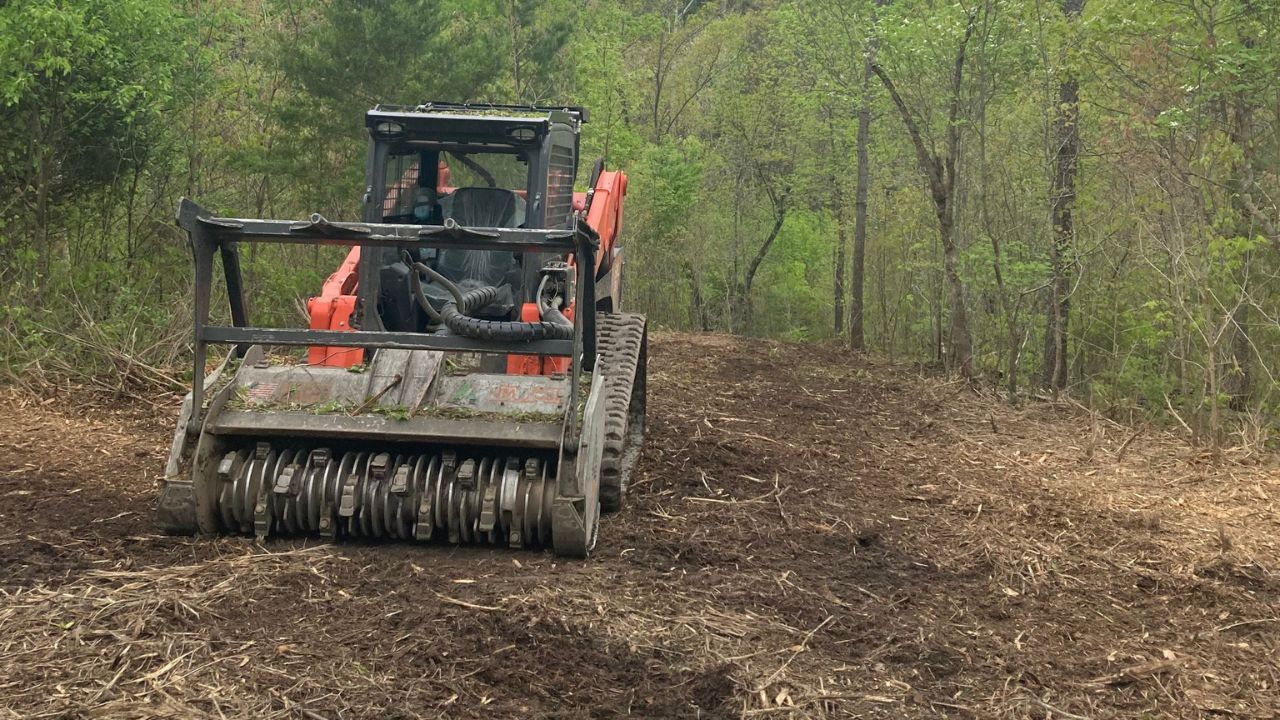Forestry mulcher teeth are critical to converting difficult landscapes to manageable, productive, and safer landscapes. These parts are specially made to be efficient, durable, and precise because they are the core of all mulching machines, as they cut, shred, and grind trees, shrubs, and stumps. The use of carbide forestry mulcher teeth of high quality makes the operator faster when doing demanding land clearing work and minimizes the wear and tear of the equipment. In forestry, agricultural machines, building, and environmental restoration programs, forestry mulcher teeth are essential tools as they guarantee effective operation and predictability.
Land Clearing for Construction and Development
Large-scale clearing of land to build roads and other infrastructure projects is one of the most widespread uses of forestry mulcher teeth. The land has to be cleared of vegetation, trees, and roots before residential communities, commercial buildings, or new roads can be built. Forestry mulchers with carbide teeth are highly effective in the thinning of dense brush and timber, resulting in a smooth layer of mulch which can easily be processed or recycled.
This is much more efficient when compared to the old ways of felling trees, i.e., by hand or bulldozing, which is a lengthy and expensive process. The operators are able to cut through hardwood and mixed vegetation with minimum downtime with the right forestry mulcher teeth. The outcome is a graded and smooth site, which is prepared to graduate or to be graded. In addition, mulching also leaves behind organic residue that is likely to prevent erosion and enhance soil fertility, a fact that makes it an environmentally friendly way of making land ready to be constructed.
Forestry Management and Maintenance
Overgrowth and a healthy tree population are critical activities in the forestry work. Forestry mulcher teeth are applied in the control of underbrush, thin dense stands of trees, and dead or diseased vegetation. Mulching of the unwanted plants selectively helps the forestry professionals to increase the amount of sunlight reaching the ground and the growth of healthier and stronger trees.
The mulching also assists in minimizing the fire hazards. Dry vegetation and brush accumulation may be dangerous in case of wildfires, particularly during dry weather. Forestry mulcher teeth make it easy to clear these possible sources of fire, which form firebreaks and reduce the chances of uncontrollable fire. Their grinding capability of the material to fine mulch also means that there is no big debris left behind, and this reduces the risk of hazards in the forested regions.
Roadside and Utility Maintenance
Forestry mulcher teeth also play a significant role in ensuring that there is clear visibility as well as easy reach all over roadsides, highways, and utility corridors. Overgrown plants and vegetation have the potential to block road signs, limit sight, and disrupt power cables and power piping. Maintenance crews can also clear vegetation with the aid of forestry mulchers and do it within a short time, without disrupting the infrastructure around it.
In utility industries, especially in power transmission and maintenance of communication lines, the presence of forestry mulcher teeth can be used to take care of right-of-way management by restraining the growth of vegetation. The fact that they can shred thick brush and small trees guarantees that the maintenance crews can work efficiently and minimize chances of outage or damage in the form of overgrown branches.
Right-of-Way and Pipeline Corridor Clearing
The other notable use of the forestry mulcher teeth is during the maintenance of the rights of way and pipeline corridors. The removal of vegetation around oil, gas, and water pipes is pertinent in order to make them safe, more accessible, and meet the stipulations of the law. Forestry mulchers that have carbide high-performance teeth are able to handle dense vegetation within a short period, even in rough or uneven terrain.
The resulting uniform mulch does not allow the soil to grow, and it gives a protective layer to the soil, minimizing the erosion around the pipelines. Such operations require durable teeth that are stable enough to handle soft plant material and any other hard object, like a stump or a rock. Well-selected mulcher teeth make the process efficient with the minimization of downtime, and this is very critical in large-scale projects of managing the corridor.
Conclusion
Forestry mulcher teeth are also versatile and powerful, which makes them indispensable in a wide variety of land and vegetation management activities. These customized components are at the center of instrumental, sustainable, and secure land-clearing undertakings, from clearing out land to constructions and farming to roadsides, utility routes, and so on. They are more durable, have better cutting capacity, and can operate in diverse environments to help the professionals work with less time and reduce effects on the environment, with predictable outcomes. Regardless of the objectives for which a farmland is to be cultivated, to control forest growth, or to restore disturbed land, high-quality forestry mulcher teeth are also a crucial weapon in modern land management and development.


